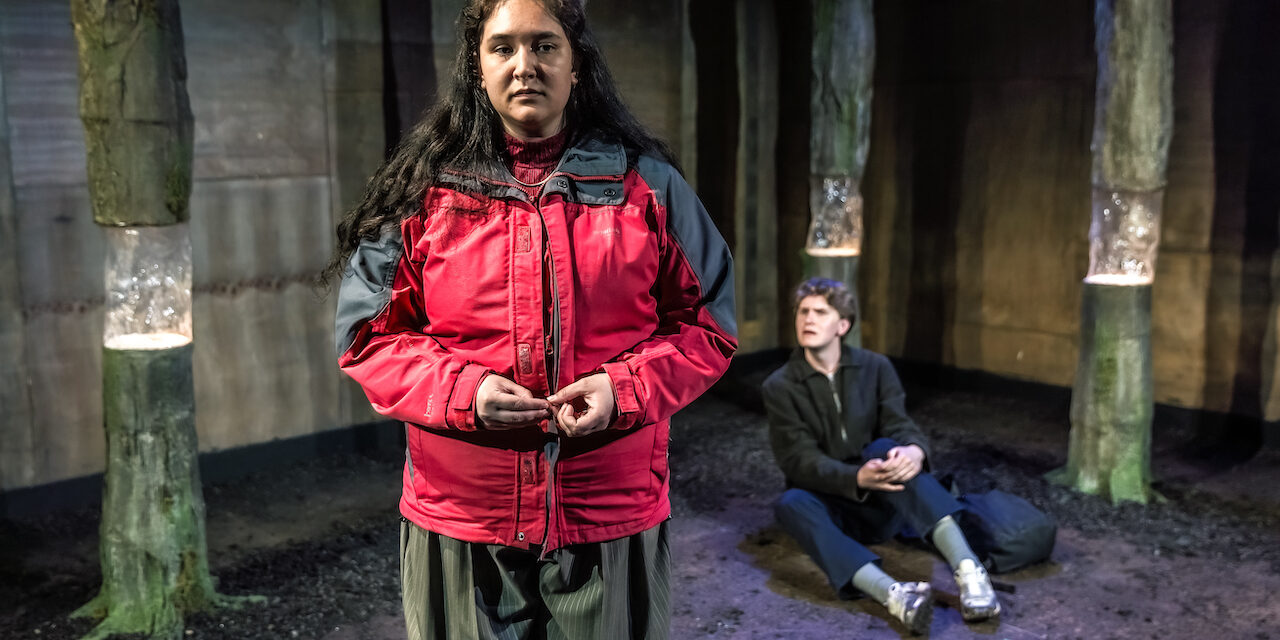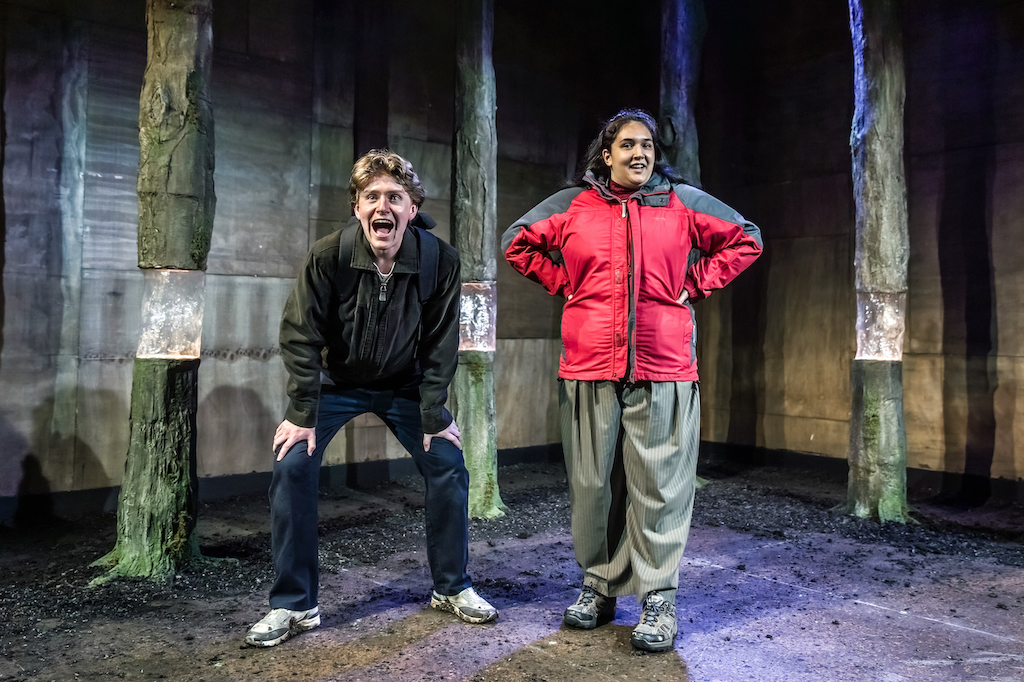
23 – 25 May
Bristol Old Vic Theatre School’s Summer Festival of 2024 begins with a couple of one-act plays that have some features in common. Both have a remote, rural setting; both have characters with something to hide; and in both plays there is a creeping awareness that all is not what it seems to be.
Brad Birch, writer of Black Mountain, is a winner of the Harold Pinter Commission, and there is more than a touch of the old master in this psychological thriller, which has moments of dark comedy. Paul (Fletcher Garrard) and Rebecca (Mira Edirisingha) are staying in a holiday home, but they are in separate bedrooms. This escape to a rural retreat would appear to be an attempt to mend a seriously damaged relationship, or is it? Just what does Rebecca mean when she says she wants Paul to feel the same level of pain as she has suffered? Faced with her angry insistence that he should be entirely honest with her, Paul becomes ever more anxious and on edge. Garrard vividly conveys his increasing desperation, every utterance fractured by an awkward misstep or nervous hesitation. His anxiety is cranked up to an even higher level with the arrival of Helen (Tumi Olufawo), prowling outside in the darkness. Paul’s relationship with Helen is over, so what does she want from him now? And why has the axe gone missing from the woodshed?
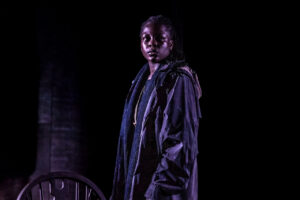
Director Anna Whealing has ensured that the tension builds up nicely over the hour, and she is very well served by a talented cast. Clever use is made of flickering light and ominous rumblings. Black Mountain sets the bar high for the rest of the BOVTS Summer Festival.
Jez Butterworth’s The River is also a psychological thriller featuring the relationships between a man and two women, but it is altogether a more ambiguous and elusive piece. The characters are nameless, and at times the language takes on a heightened lyricism. All the action takes place in a riverside cabin owned by The Man (Joseph Stanley), where he pursues his intense passion for fly-fishing. The Woman (Olivia Hemmati) enters, clutching a copy of To The Lighthouse.
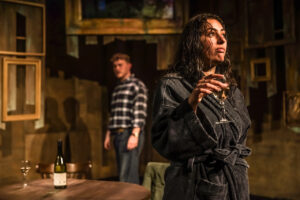
She is entranced by the beauty of the sunset, and she wants him to join her in admiring it. He refuses to look, being totally focused on assembling his fishing gear, for this is a moonless night, and he expects the sea trout will gather in number at the long pool. Despite not looking, he describes the colours of the sunset in vivid detail, creating an unsettling suspicion that this is a scene that has been played out before.
In the next scene The Man is anxiously phoning the police to tell them a woman has gone missing during a fishing expedition, but to his relief she suddenly turns up. But she is not the woman with an enthusiasm for Virginia Woolf and dramatic sunsets; this is The Other Woman (Laura Jennifer Banks), a down-to-earth, sparky individual who, assisted by a poacher, has caught an impressively large trout with the distinctly unconventional technique of attaching a pickled onion flavoured Monster Munch to her line.
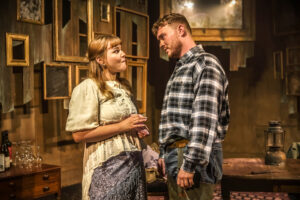
There has been a shift in time, and it is now clear that The Man is in the habit of inviting women to his cabin, declaring his love for them, immortalising them in his sketches and then… what? Is The Man’s love of fishing a re-channelling of unfulfilled passions of another, and possibly much darker kind?
I have seen productions of The River that have given greater emphasis to the idea that The Man is very dangerous, and here the scene where he guts the Other Woman’s sea trout could perhaps be paced more slowly and thus be endowed with greater menace. However, Director Jon-Luke Goodman has ensured that a pervading sense of uncertainty is sustained, and there are very real strengths in the performances. The personalities of the two women are clearly differentiated, and Joseph Stanley powerfully depicts a conflicted character with unfulfilled longings.
★★★★☆ Mike Whitton, 24 May 2024
Photo credit: Craig Fuller

